The 34th National Games begin in Ranchi today. More than 8,000 athletes, including a host of Commonwealth and Asian Games medalists, will be vying for top honours in the 16-day event which will conclude on the 27th of this month. Dhanbad and Jamshedpur are the two other centers which will host the multi-discipline competition.
Jharkhand Governor M O H Farook will declare the National Games open. It will be followed by an opening ceremony that will showcase the cultural and sporting heritage of the state at the Birsa Munda Athletics Stadium.
The opening ceremony will also have Bollywood flavour with performances by Ameesha Patel and Vivek Oberoi. The three-hour show will begin at 5 pm with a tribute to Jharkhand's warrior Birsa Munda followed by performance by the folk artists and a laser show on the eminent sportspersons from the state.
Politicians in Brazil are considering a constitutional amendment to help ensure what becomes a social right of all citizens?
It's happiness. A bill to amend Brazil's constitution to make the search for happiness an inalienable right is widely expected to be approved soon by the Senate.
Thousands of police cleared the biggest squat in a European city. The building, known as No 14, had been occupied for two decades and was inhabited by a mix of people, including punks and militants in their 50s. Where is it?
It's Berlin. More than 2,000 police were deployed to clear the squatters out of the apartment building, Liebig 14, in the eastern Berlin district of Friedrichshain, a former working class area that has become fashionable since the Berlin Wall fell in 1989.
It was revealed this week that Chinese state television had broadcast a news report, which appeared to include footage taken from a Hollywood film. Which one?
It was Top Gun. The footage showcasing China's new J-10 fighter and including an air-to-air missile destroying another jet, was published by The Wall Street Journal, alongside film sequences from the 1986 movie. It noted many similarities.
City councillors in New York have approved some of the toughest measures to be adopted in a major metropolis. Against what?
It's smoking. A smoking ban has been extended to municipal parks, beaches and other pedestrian zones. The ban, which will take effect three months after it has been signed by mayor Michael Bloomberg, will make it an offence to smoke in any of the city's 1,700 parks and more than 20km of coastline.
Protests in Egypt against the 30-year rule of President Hosni Mubarak have focused on Cairo's Tahrir Square, or Midan Tahrir. Translated, it is known as...
It's Liberation Square. The square was originally called Midan Ismailia after a 19th Century ruler. It was renamed after the Egyption revolution in 1952, which established the country as a republic.
"Delhi Airport fails hijack test", reports the Hindustan Times. A mock drill conducted by the Central Committee Control Room at the Delhi Airport and the resultant confusion of various involved agencies made it clear that very few lessons had been learnt from the CI 814 hijack to Kandahar in 1999.
The Statesman tells us that in a first, ten top private firms and banks will conduct a recruitment drive at Tihar Jail to pick suitable persons from the shortlisted 50 inmates who figure in the placement for jobs.
The Non-resident Indians (NRIs) can now cast votes in their home constituencies. Centre has notified rules in this regard. The rules make it clear that the NRIs would have to register as voters and be physically present with their passport on the polling day to exercise their franchise.
There is, however, no provision for postal balloting. The notification prepared in consultation with the Election Commission clarifies that NRI voters now can submit the application directly to the electoral registration officer of the constituency within which the place of residence is mentioned in the passport.
AIR correspondent reports, the application can either be submitted directly or sent by post.
AIR Correspondent reports, this meets the longstanding demands of the NRIs and fulfills the promise made by the Prime Minister Dr. Manmohan Singh at last year's Pravasi Bharatiya Divas held in New Delhi.
According to the Representation of the People Act, once a person is registered as a voter, he automatically gets a right to contest polls also. Now, if any NRI has a political ambition to be elected as peoples's representative, he or she can fulfill that aspiration also.
As per the Representation of the People (Amendment) Act, 2010, so far a person who has gone out of the country for business or employment should be treated as having moved out of that place.
Mere ownership or possession of a building or other immovable property did not bestow on the owner, the residential qualification.
The Amendment Act says, there are a large number of citizens of India residing outside India due to various reasons. They have been persistently demanding for conferring them voting rights.
Though the issue had been receiving the attention of the Government for quite some time, the demand could not be acceded to owing to certain practical difficulties in enrolling them in the electoral rolls of the concerned constituency.
The Act says the right to vote as demanded by the citizens of India living abroad is their legitimate right. Conferring such right will enable them to participate in the democratic process of elections in their motherland and will also boost their involvement in the nation building.
This is your new blog post. Click here and start typing, or drag in elements from the top bar.
Infant Mortality Rate has come down in the country. According to Sample Registration System infant deaths have dropped to Fifty deaths per one thousand live births at national level in 2009. Registrar General of India (today noted that Infant Mortality Rate was fifty three per one thousand in 2008. In rural areas also it declined from 58 to 55 infant deaths per one thousand live births.
It is a great honour for our country to have Bappi Lahiri as the first Indian in a Grammy jury
Government appoints U.K Sinha as new chairman of SEBI
1. civilserviceindia.com
2. upsc.gov.in
3. onestopias.com
4. civilservice.in
5. indiacareer.com/competitiveexams/civil-service-ias.html
PM's address at the 98th Indian Science Congress
January 3, 2011
Chennai
“I am delighted to be here in Chennai. I wish the people of Tamil Nadu a peaceful, prosperous and fulfilling New Year. I am very happy that every New Year begins with an opportunity for me to meet some of our most distinguished scientists.
Tamil Nadu has a unique place in the world of Indian science. India’s first Nobel Laureate in the sciences, Dr C V Raman, was a proud student of Presidency College, Chennai. So was Professor S. Chandrasekhar. The State has also produced one of India’s greatest mathematicians, Srinivasa Ramanujan.
The time has come for Indian science to once again think big; think out of the box; and think ahead of the times. The time has come for India to produce the Ramans and Ramanujans of the 21st Century.
This year, as we usher in the New Year, we also usher in the “Decade of Innovation”. There is no better way to do that than to salute the creativity and the genius of our scientists and engineers, our professionals, our workers, our scholars and students, gathered here today. I sincerely hope each one of you will go forth from here, dedicating your life and your work to the development of modern science and to the application of science to the betterment of the lives of the Indian people.
I am delighted that the theme of the 98th Science Congress is “Quality Education and Excellence in Science Research in Indian Universities.” I have always believed that a university is the vital link in the chain of science teaching and research. We must never forget that. Unless we strengthen the base of our educational system, we can never hope to extend the height of the pyramid of excellence. We also need to create an innovation eco-system so that innovation becomes a way of life in our knowledge institutions.
As a former university teacher, I am happy that our government in the last six years has tried to pay special attention to the growth and development of our university system. We have sanctioned funds for the creation of new universities and increased the capacity of existing ones. In the past 5 years, the Government has established eight new IITs and five Indian Institutes of Science Education and Research to provide high quality education and carry out research in frontier areas of science and technology. An Academy of Scientific and Innovative Research which seeks to produce more than 1,000 doctoral and post graduate fellows every year is being established. I urge our teaching community to strengthen both the teaching and research sides of our University system.
In the early dawn after Independence, Jawaharlal Nehru, India’s first Prime Minister told a gathering at the Allahabad University in 1947:
“A University stands for humanism, for tolerance, for reason, for progress, for the adventure of ideas and for the search for truth. It stands for the onward march of the human race towards even higher objectives. If the universities discharge their duty adequately, then it is well with the nation and the people.”
Jawaharlal Nehru was thoughtful and precise when he drew a link between humanism, tolerance, reason, and progress. The practice of science is based on both the search for truth and on the adventure of new ideas.
What better place than a University for pursuits of both these goals? But our Universities have to be more hospitable to creativity and genius, and less captive to bureaucracy and procedure. They should be more open to talent and to the challenge of new ideas.
The growth of our economy, the health of our people and the security of our country depends on the scientific and technological competence. This is well understood and is reflected in the substantial support that all governments give to the pursuit of scientific research. This support is often swayed by the immediate needs as perceived at that time. In this way the direction of scientific effort is shaped by society at large.
But scientists are not just servants who do the bidding of their paymasters. They are driven by curiosity and seek knowledge often for its own sake. The fundamental discoveries of physics, chemistry and biology have come from this thirst for understanding rather than from any social compulsion.
But big discoveries have influenced society through new technological options which have offered generally benefits to humankind but sometimes have been used for more harmful purposes as well.
In fact, Bertrand Russell once said: “I am compelled to fear that science will be used to promote the power of dominant groups rather than to make men happy.”
Are such concepts of good and bad relevant for directing scientific effort? Science is value free in the sense that scientific hypotheses have to be accepted or rejected on the basis of facts and not on the basis of their consistency with any ethical or religious belief.
We universally now accept that the Earth revolves around the Sun on the basis of the consistency of the hypothesis with observed positions of stars, even though the belief was inconsistent with the cosmological view of some religions. That is the fundamental achievement of the scientific revolution that has separated the realm of religion and the realm of science.
But how science is used depends also on the values and priorities of the time in society. Thus the splitting of the atom led on the one hand to the atomic bomb and on the other to nuclear energy. One kills; the other has extended the bounds of developmental possibilities on a planet worried about carbon emissions and climate change.
The development of synthetic chemistry was the basis of poison gas used in wars and of agro chemicals and pharmaceuticals. Mendelian genetics provided the knowledge for the breeding of new crop varieties and also for perverse experiments in eugenics in Nazi Germany.
These examples illustrate why the application of scientific knowledge to human and social development must be value based even though science itself be value neutral.
Take modern developments in the bio-sciences for instance. We are now acquiring the capacity to manipulate the human genome. But we have yet not developed an ethical framework that defines red lines that we must not cross as we do this.
It was Isaac Asimov who said, “Science gathers knowledge faster than society gathers wisdom.”
The question is whether scientists should step beyond their discipline and at least guide the social discourse on the use of scientific knowledge. Should they develop a code of conduct that defines the limits within which they will work on the application of their discoveries? Should there be a collegial process for deciding difficult cases? I leave these as questions because the very idea of ethics for science needs further discussion.
I belong to a generation that worried about the links between science and society. Scientific temper, we believed, would help India make the transition from a traditional to a modern society. We saw the development of science as intrinsic to the advancement of modernism, pluralism and liberalism.
But, it is true that science has made strides even in societies that were neither modern nor liberal. It is true that the products of science have been put sometimes to illiberal uses. I sincerely believe we must guard against such tendencies, especially in our own blessed country.
In August 2010 the Science Advisory Council to the Prime Minister prepared a report setting out a vision and a roadmap for India to become a global leader in science. The Council has inter alia recommended measures to attract the best of talent for science. I would urge our Ministries of Human Resource Development and of Science & Technology to jointly mount efforts to attract more young people to the study of science.
The report also pointed out that while C. V. Raman won the Nobel Prize eighty years ago for the Raman Effect, most of the instruments available in India today using this principle are imported. This is not an isolated example. Many of our outstanding scientific discoveries have been converted into marketable products by technologists and firms based abroad.
Why is the translation of good science and research into products so weak in our country? How do we strengthen the link between Universities, research laboratories and industry? I would like the Science Congress to discuss these issues and come out with actionable recommendations. I believe that the scientific community should give due recognition to scientists who build advanced instruments.
I have asked our the Ministry of Science and Technology to undertake a national celebration of the birth centenary of Professor S. Chandrasekhar, one of the outstanding scientists of the 20th century.
The year 2012-13 will be the centenary year of the Indian Science Congress. I would like the Ministry of Science and Technology in collaboration with the Indian Science Congress to designate 2012-13 as the ‘Year of Science in India’.
We have to make a concerted effort at building and motivating a new generation of scientific talent. To this end we had launched the INSPIRE or Innovation in Science Pursuit for Inspired Research programme and I am very happy that this programme is doing very well. More than 3.5 lakh students in the age group 10-27 years have received awards and scholarships under this innovative scheme.
Whenever I travel abroad I meet bright young people from India doing good science who tell me they look forward to the day they can continue their work back home in India. How do we draw on this talent pool? How do we make our Universities more open to such talent, including for those who seek temporary affiliation? I hope you will deliberate on these issues.
Modern cyber technology now allows trans-continental collaborative research. I would like to see more joint research projects between Indians in India and those abroad so that we can draw on this global talent pool and strengthen our own teaching and research base in our country. The high speed National Knowledge Network will greatly facilitate such collaborations.
I sincerely hope the “Year of Science in India” will unleash the energies of our young scientists and inspire a new generation of Indians to enter the world of science, cross new horizons and explore new possibilities.
I sincerely hope more young people increasingly participate in the deliberations of the Indian Science Congress in years to come. Science is ageless, but our scientists must be younger!
With these words, I wish you all well in your deliberations. May your paths be blessed!”
|
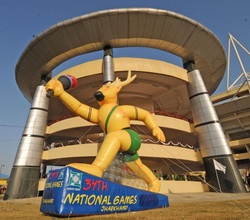
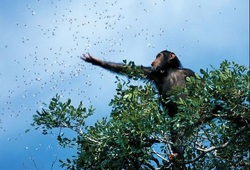
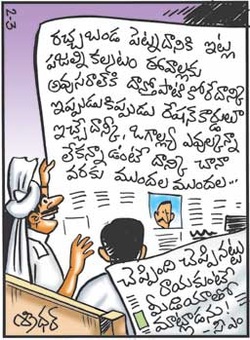



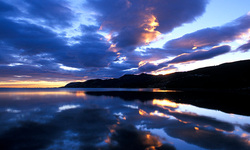
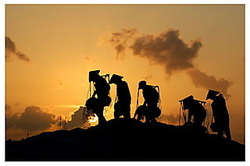
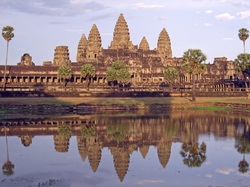
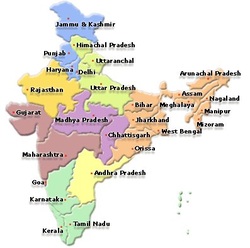
 RSS Feed
RSS Feed